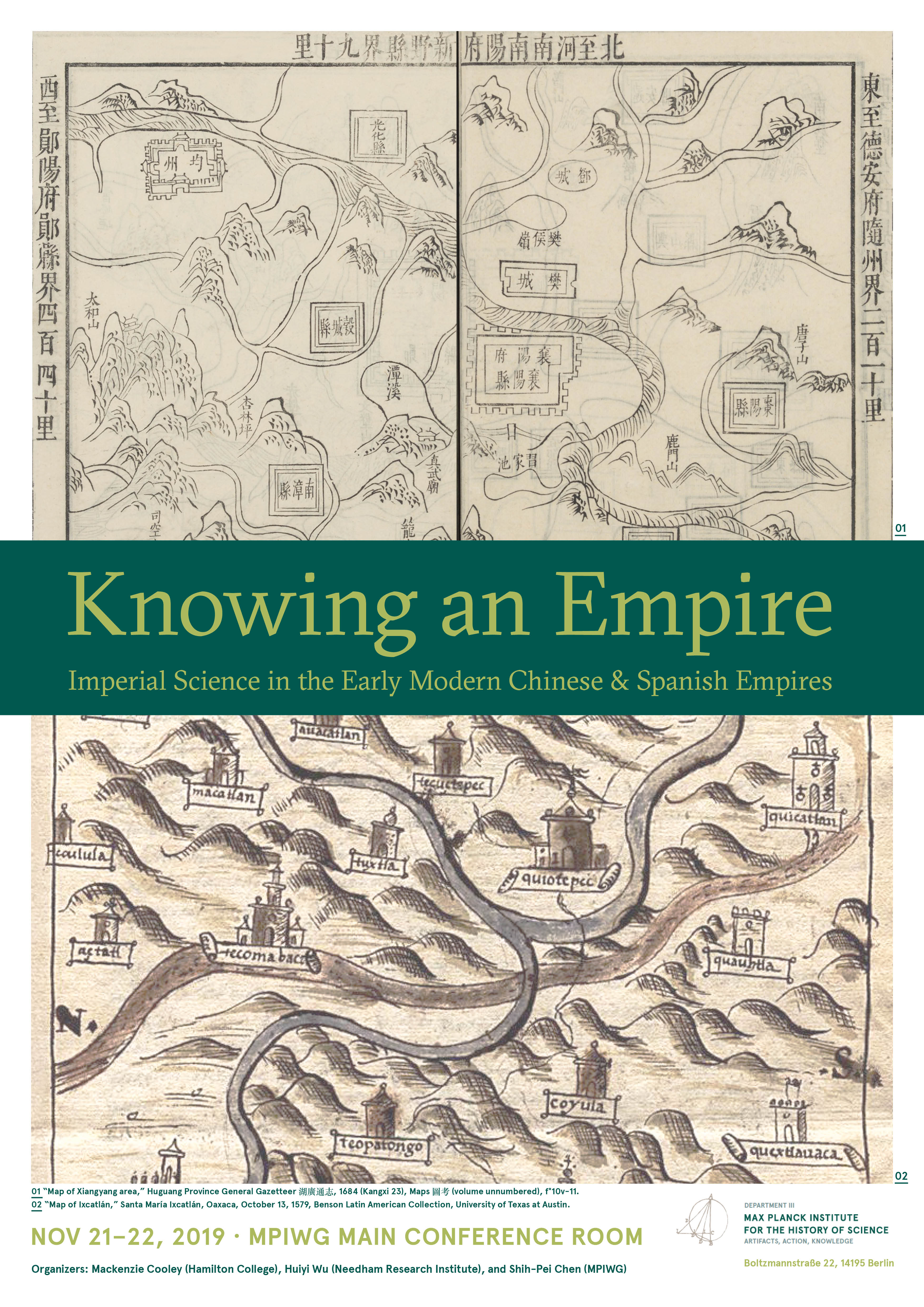Nov 21-22, 2019
Knowing an Empire: Imperial Science in Early Modern Chinese and Spanish Empires
- Workshop
- Dept. III
Vast empires, whether in Asia or the Americas, faced similar challenges when it came to scale and diversity. To control sweeping expanses of varied geography, human and natural alike, early modern administrators aimed to collect and organize knowledge. While localities within imperial boundaries might revel in their specific customs, natural histories, resources, and geographies, central administrators envisioned a means to transcend those specificities. This workshop explores how, despite their geographic and cultural distance, both the Spanish and Chinese imperial administrations developed a system of geographic knowledge collection based on remote observation. The two imperial geographical genres evolved in parallel: the difangzhi (local gazetteers) of imperial China, and the relaciones geográficas (geographic relations) of the Spanish Empire. The relaciones questionnaires developed from a sixteenth-century census precedent and continued to shape reports on indigenous geography until the early eighteenth century. Rooted in earlier traditions of geography treatises and map guides, Chinese difangzhi matured and steadily spread by the turn of the sixteenth century, with the overwhelming majority of extant gazetteers dating from this period onward. Both of these sources are being fruitfully studied by historians and historians of science in their respective regional contexts, but their comparability has never been explored. This workshop brings the two perspectives into dialogue for the first time.

Program
Contact and Registration
Please register at event_dept3@mpiwg-berlin.mpg.de.
